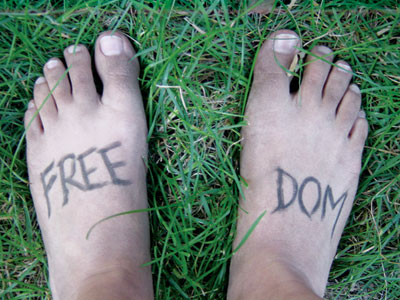All Nonfiction
- Bullying
- Books
- Academic
- Author Interviews
- Celebrity interviews
- College Articles
- College Essays
- Educator of the Year
- Heroes
- Interviews
- Memoir
- Personal Experience
- Sports
- Travel & Culture
All Opinions
- Bullying
- Current Events / Politics
- Discrimination
- Drugs / Alcohol / Smoking
- Entertainment / Celebrities
- Environment
- Love / Relationships
- Movies / Music / TV
- Pop Culture / Trends
- School / College
- Social Issues / Civics
- Spirituality / Religion
- Sports / Hobbies
All Hot Topics
- Bullying
- Community Service
- Environment
- Health
- Letters to the Editor
- Pride & Prejudice
- What Matters
- Back
Summer Guide
- Program Links
- Program Reviews
- Back
College Guide
- College Links
- College Reviews
- College Essays
- College Articles
- Back
The Rebound
Say something funny, you idiot, why can’t you keep up? No wonder no one likes you—you’re so boring! Look at her body, she is so much thinner, smarter, and funnier than you. You won’t ever be good enough.
Welcome to the horrible, twisted mind of an anorexic; a place where labels, criticisms, and punishments run rampant. I heard this voice for the first time in middle school, until eventually it became the only thing I could hear. The more I listened, the more I depended on my eating disorder to quiet it. I thought, Maybe if I lose weight, improve my grades, and make friends, I will be good enough and the voice will go away. But it only grew stronger. I had embarked on a fruitless pursuit of perfection—an ideal I would later realize, does not exist.
Throughout middle school my eating disorder slowly developed in the background, but as I entered high school, it quickly and dangerously rose to the forefront. Within months, I had lost a significant amount of weight, and my entire life belonged to the eating disorder. Food, exercise, weight, and self-criticisms consumed my every thought, replacing the stress, anxiety and depression I did not want to feel. My personality deteriorated along with my body, until my sole source of happiness came from the success of starving myself. The drastic changes in my behavior shocked those closest to me, and I soon found myself in the midst of an intervention.
Counter-intuitively, my life became enormously more difficult after I entered treatment for anorexia. Defying the eating disorder proved to be much harder than giving in, so naturally, I refused to do it. I arrived at the treatment center with my mind not only closed, but locked, tied, and wired shut. I convinced myself there was nothing wrong with my lifestyle, or at least, no way to escape it. I thought I knew exactly what they would say, but relatively quickly, I was taken by surprise.
That said, life got much harder before it got easier. The combined forces of my mom, dad, dietician, and therapist descended on my eating disorder with unexpected severity. Within weeks, all my meals were strictly monitored, exercise became a cardinal sin, and I spent more time in therapy than anywhere else, excluding school and home. Despite these extraordinary efforts, I was still consumed by the disorder and basically falling apart. As much as the eating disorder formed the roots of my self-hatred, it also kept it temporarily at bay—as long as I continued to starve myself. My emotions and self-criticisms skyrocketed as my treatment team chipped away at the only coping mechanism I had. I immediately determined I could not live without an eating disorder. But, thanks to my incredible, unwavering support system, I can now admit I was wrong.
“You’re a rebounder.” The exciting revelation glittered in Lora’s eyes. At this point in treatment, I was not dangerously sick, but in the scary no-man’s-land where I could go either way. My initial reaction to this statement was to deny it, as I did with all praise, in fear that I would not live up to the compliment. But curiosity got the better of me.
“What do you mean?” I asked hesitantly.
She paused, thinking. “Whenever a problem comes up in your life, you recognize it and find a solution—as if you are rebounding from the impact of a setback. Instead of continuing to struggle, you found a way to fix the problem within the circumstances. It’s not easy to rebound from difficulties and return stronger, but you are already doing it, ” Lora said.
Something clicked in my mind that day, and instead of shying away from the praise, I embraced it—determined to prove her right. “Rebounding” became my mantra as I struggled through the twists, turns, and hurdles of recovery. Though it was extremely difficult to believe at times, I constantly reminded myself that hard days are opportunities to make tomorrow better. The daily battles felt worth it when I focused on the larger picture, and my goal of freedom. I wanted a more meaningful legacy than being known as the “thin, moody anorexic,” and realized counting calories was the least valuable of my abilities. I realized perfection has a fluid definition, and therefore does not exist. I learned to feel emotions as they came, instead of letting them build up inside. But more than anything, I realized that I am good enough—for myself, for recovery, and for the people I love.
As I sit writing this story, I cannot help feeling completely content. Two years ago, I hopelessly surrendered myself to my eating disorder. Today, I am living a life I never dreamed possible. The voice has been silenced, only rarely daring to make a peep. I rediscovered my love of running, along with the enjoyment, satisfaction, and freedom of intuitive eating. Conquering my eating disorder revealed strength I did not know I possessed. Today, instead of calling myself fat, boring, and stupid, I can call myself a rebounder.

